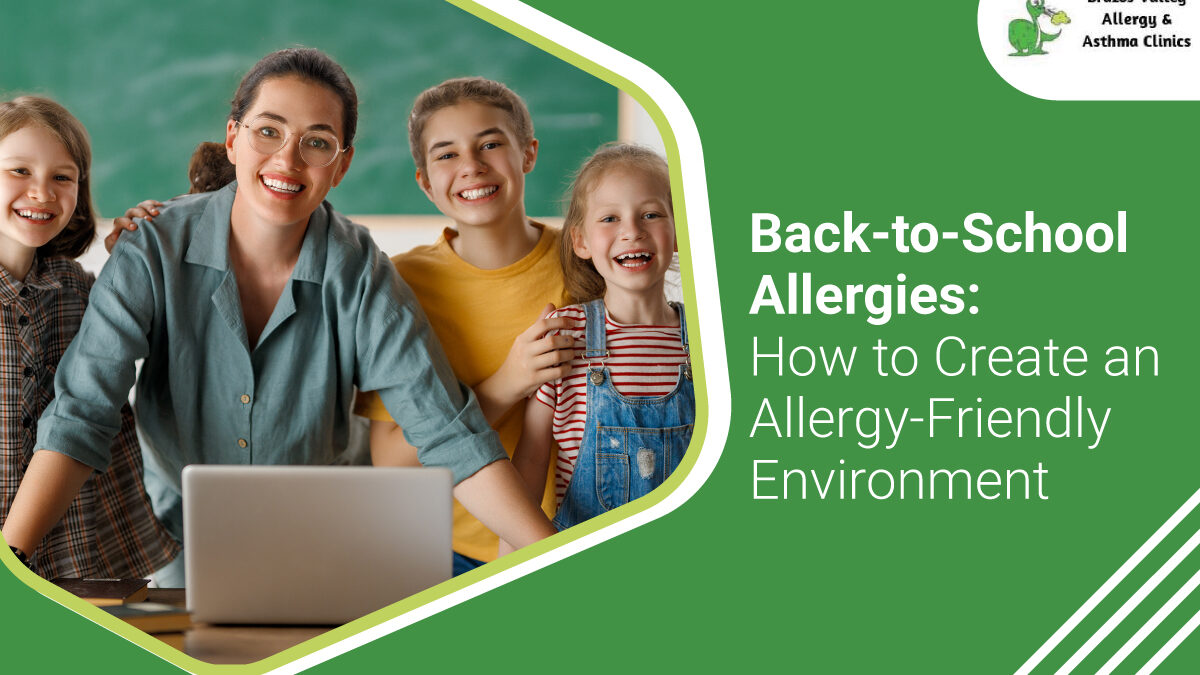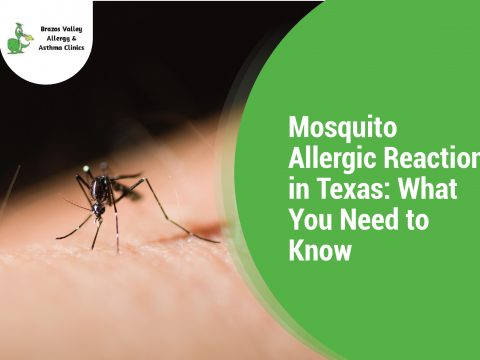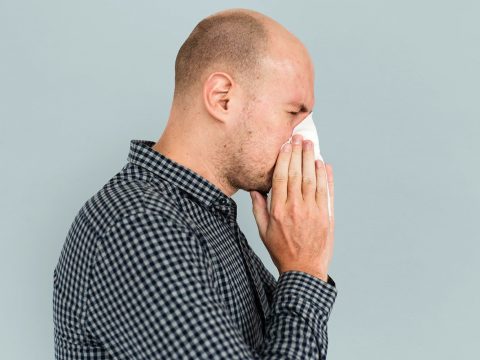- 979-485-9287
- office@bvallergy.com
-
 979-251-7804
979-251-7804
Back-to-School Allergies: How to Create an Allergy-Friendly Environment

Preventing Outdoor Allergies: Tips for Enjoying the Outdoors
August 18, 2023
Allergic Conjunctivitis: Causes, Symptoms, and Triggers
August 29, 2023Understanding the Link Between Food Allergies and Schools
As the school year approaches, many parents and students eagerly prepare for the academic challenges ahead. However, for some, the excitement is tempered by the onset of back-to-school allergies.
Allergies can significantly hinder a child’s learning experience, affecting their concentration, attendance, and overall well-being. The Centers for Disease Control and Prevention noted that about 1 out of 5 kids (18.9%) experience seasonal allergies, 10.8% suffer from eczema, and 5.8% have a food allergy.
This article will explore creating an allergy-friendly environment to ensure a safe and healthy school year. From understanding common allergens to implementing practical measures, we got you covered. Let’s dive in!
Allergy in Schools: The Culprits
Before we delve into creating an allergy-friendly environment, let’s identify the common allergens that trigger allergic reactions in students:
- Pollen: Pollen from trees, grasses, and weeds can lead to seasonal allergies, commonly known as hay fever.
- Dust Mites: These microscopic critters thrive in bedding, carpets, and upholstered furniture, causing allergic reactions year-round.
- Mold: Mold spores can be present in damp areas like bathrooms and basements, triggering allergies and respiratory issues.
- Pet Dander: The tiny flakes of skin shed by furry animals can be a significant allergen for many students.
- Cockroaches: Cockroach droppings and shed body parts are allergens in some school environments.
- Foods: Common allergenic foods like peanuts, tree nuts, milk, eggs, wheat, soy, fish, and shellfish can cause severe allergic reactions.
Create an Allergy-Friendly Environment
Now that we are aware of the potential allergens let’s explore various strategies to create an allergy-friendly environment:
-
Establish Open Communication
Open communication between parents, teachers, and school staff is vital to effectively understand a child’s allergies and address potential triggers. A comprehensive allergy action plan should be developed and shared with all relevant stakeholders.
-
Regular Cleaning and Maintenance
Frequent cleaning and maintenance of school facilities can significantly reduce allergens such as dust mites and mold. Custodial staff should use allergen-reducing cleaning products and follow best practices for cleanliness.
-
Pest Control Measures
To minimize cockroach allergens, schools should implement strict pest control measures. Regular inspections and effective pest management can curb infestations and protect students from allergens.
-
Allergy-Friendly Classroom
Educators can play a vital role in creating an allergy-friendly classroom environment. They should know students’ allergies and avoid using allergenic materials like scented markers or art supplies.
-
Air Filtration Systems
Investing in high-quality air filtration systems can help minimize airborne allergens like pollen and pet dander, providing students with cleaner air to breathe.
-
Outdoor Activities
Planning outdoor activities is essential during peak pollen seasons when pollen levels are lower. Attention to weather forecasts and pollen counts can help schedule safe outdoor events.
-
Allergen-Free Lunchroom
The school’s cafeteria should have allergy-friendly options and implement strict cross-contamination protocols for students with food allergies.
-
Educational Allergy Programs
Schools can conduct educational programs to raise awareness about allergies, their symptoms, allergy safety tips, and emergency procedures. Such initiatives promote empathy and understanding among students and staff.
-
Nut-Free Policy
Given the prevalence of nut allergies, schools may consider adopting a nut-free policy in classrooms and during school events.
Medication Protocols
Schools must have clear protocols for administering medications like epinephrine in case of severe allergic reactions.
-
Allergy Bracelets or IDs
Encourage students with allergies to wear medical alert bracelets or carry identification cards detailing their allergies and emergency contacts.
-
Storage for Medications
Schools should provide secure and easily accessible storage for students’ allergy medications.
-
Clean Hands Policy
Promote and encourage regular handwashing to prevent the spread of allergens and minimize exposure to germs.
-
Promote Hydration
Encourage students to stay hydrated, which can help ease nasal congestion and respiratory symptoms.
-
Allergy Testing and Screening
Partner with healthcare professionals to conduct allergy testing and screening for students with suspected allergies.
-
Support from School Nurses
School nurses should be well-informed about students’ allergies. They should know how to deal with allergy-related emergencies promptly.
Incorporate Allergy-Friendly Curriculum
Integrate allergy-friendly topics into the curriculum, promoting inclusivity and empathy among students.
-
Emergency Drills
Conduct regular emergency drills to prepare for allergy-related incidents.
-
Scent-Free Policy
Implement a scent-free policy to accommodate individuals with fragrance sensitivities.
-
Regular Allergy Updates
Stay updated on new allergies or emerging allergens to adapt school policies accordingly.
-
Allergy-Friendly School Events
Organize school events with allergy-friendly treats and activities to ensure all students can participate.
-
Allergy Awareness Month
Designate a month for allergy awareness, with special activities and educational sessions.
-
Allergy-Friendly Transportation
Clean and maintain school buses and other transport vehicles regularly to reduce allergen contamination and exposure.
-
Parental Involvement
Encourage parents to participate in allergy management and school activities actively.
-
Celebrating Diversity
Create a culture of acceptance and understanding, valuing each student’s uniqueness, including their allergies.
Allergy-Friendly Schools can significantly impact a student’s health and academic performance. By following these guidelines and fostering a supportive environment, schools can ensure a safe and enjoyable learning experience for every student, regardless of their allergies.
FAQs:
What should I do if my child has a severe allergic reaction at school?
In case of a severe allergic reaction, the school should follow its emergency action plan, which may include administering epinephrine and calling for medical assistance immediately.
Can allergies affect my child’s academic performance?
Yes, allergies can lead to symptoms like sneezing, congestion, and fatigue, affecting a child’s concentration and attendance at school.
Can schools ban allergenic foods altogether?
While schools can implement nut-free policies, banning all allergenic foods may be challenging and impractical. Instead, they can focus on creating allergy-friendly environments and educating students about food allergies.
What are the most common food allergens among students?
Students’ most common food allergens include peanuts, tree nuts, milk, eggs, wheat, soy, fish, and shellfish.
Can schools be proactive in preventing allergies?
Schools can take proactive measures like allergen-free cleaning, education programs, and creating allergy-friendly policies to prevent and manage allergies effectively.
Are allergies curable?
While allergies are not entirely curable, they are highly manageable through avoidance, medication, and other treatments.
Ensuring a Safe Back-to-School Experience for Children with Allergies
Back-to-school allergies can present significant challenges for students and parents alike. However, with proper planning, communication, and proactive measures, schools can create allergy-friendly environments that prioritize the health and well-being of all students.
By fostering a supportive and inclusive atmosphere, we can ensure that every child has an enjoyable and successful academic journey, free from the burden of allergies.
Begin an Allergy-Free Back-to-School Adventure for Your Child with Us!
You’re on the right page if you search online for “allergy season safety tips, allergy kids, or kids allergies.”
Your child’s safety and well-being come first. That’s why our board-certified allergists in the south-central Texas region, Brazos Valley Allergy & Asthma Clinics are here to make your child’s back-to-school journey as safe as possible against allergies.
Our services include safe and efficient allergy treatment and management options to provide the suitable protection your child deserves from allergies at school. We also have quick appointment scheduling to help your child achieve a healthier and happier life.
Book an appointment today.




